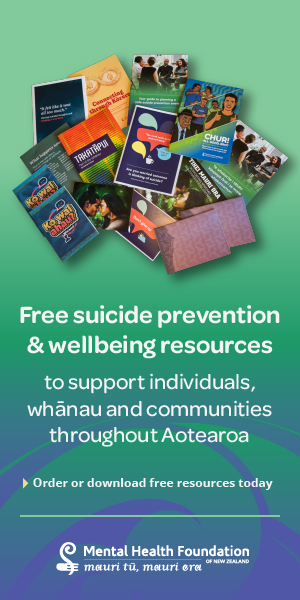Māori nurses have called for an end to discrimination in the health system for themselves and all tangata whenua at the largest international gathering of indigenous peoples in New York.
Tōpūtanga Tapuhi Kaitiaki o Aotearoa – NZNO Kaiwhakahaere Kerri Nuku attended the UN Permanent Forum on Indigenous Issues (UNPFII) on April 17-28, with Te Poari representatives Tina Konia and Tracey Morgan.
The UNPDII is the primary platform for all indigenous peoples to exchange ideas and discuss them with nation states and UN entities, Dario Jose Mejía Montalvo, chairperson of the forum said in a statement.
“The forum provides an opportunity to listen to the perspectives of those who have been marginalized, but who have always provided solutions to the enormous challenges facing humanity and our survival on the planet.”
Nuku said it was an opportunity to highlight inequities in access to health care for Māori, and learn about the struggles other indigenous peoples were having.
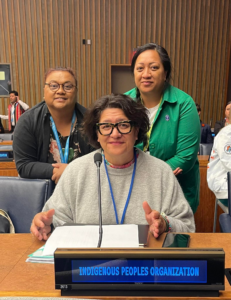
“When you get there, you are humbled to be in the presence of such amazing indigenous people . . . when they speak up around atrocities that have happened to them, or their world view, it’s very interesting to watch the governments’ reactions.”
Addressing the forum, Nuku said a Waitangi Tribunal inquiry in 2019 found the Crown failed to provide equitable health outcomes for Māori and to ensure funding earmarked for Māori health was used for that purpose.
The Crown had also failed to hold health providers to account on upholding te Tiriti and ensure Māori have adequate decision-making authority for the design and delivery of services.
While legislation to reverse racially-based disparities in health outcomes – the Pae Ora (Healthy Futures) Act 2021 – had been enacted, it was still at risk of being undermined by racist agendas, Nuku said.
” . . . initiatives, such as the Māori Health Authority (Te Aka Whai Ora), have been weaponised and used as a political football with threats and fear, used by political parties to disestablish the authority before it had even begun.
The clear under-funding of the authority raises the clear concerns expressed in the report from the Tribunal and signals a further entrenchment of racism.”
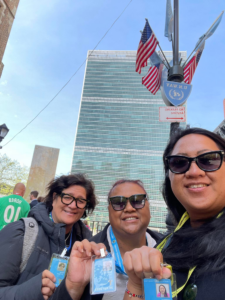
Nuku said the Government had not addressed “issues of pay parity and workforce for our indigenous workers”.
“In conclusion, we call on the Special Rapporteur and the expert advisory to hold the New Zealand Government accountable for their breaches of indigenous rights.”
Special rapporteurs are human rights experts appointed by the UN to monitor the human rights’ situation of member states.
Nuku also called for the New Zealand Government to ratify the Indigenous and Tribal Peoples Convention, 1989 – known as the International Labour Organisation (ILO) Convention 169, a major binding agreement concerning indigenous peoples and tribal peoples.
Ratification would commit the Government to the protection of the rights of the indigenous workers, and guarantee “respect for their integrity”.
New Zealand has signed up to the UN Declaration on the Rights of Indigenous Peoples, a legally non-binding resolution passed in 2007, which defines rights of indigenous peoples, including cultural and ceremonial expression, identity, language, employment, health and education – but has not ratified the ILO Convention 169.
Te Puni Kokiri sent three kaimahi to the forum to represent the Government, but they were not aware of NZNO’s intervention and had not seen it, a spokesman said.
The agency did not coordinate the invitations and attendance of non-government agencies.
“It’s worth noting that the forum is an opportunity for governments and NGOs to present their whakaaro on a global stage, not necessarily to respond back and forth.”
No sign of action to grow Māori nursing workforce
Despite a population of about 18 per cent, the proportion of the Māori nursing workforce has remained at about 7 per cent.
While there had been much talk, Nuku was not aware of any specific government initiatives to increase the Māori nursing workforce implemented to date.
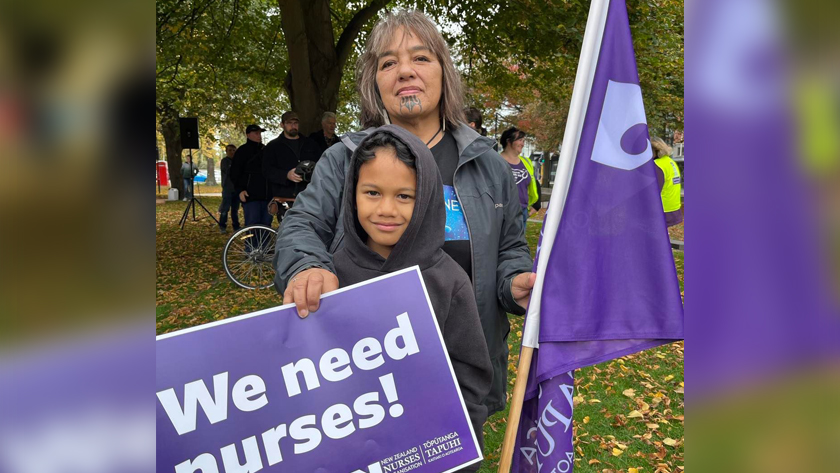
In a joint statement, Te Whatu Ora Chief Nursing Officer Dale Oliff and Te Aka Whai Ora Chief Nursing Officer Nadine Gray said the entities and Manatū Hauora (the Ministry of Health), were working to grow and support the Māori healthcare workforce.
“Te Aka Whai Ora is working in partnership with Te Whatu Ora and Manatū Hauora to support this work and ensure these initiatives are fit for purpose and meet the needs of our Māori providers and communities,” Gray said.
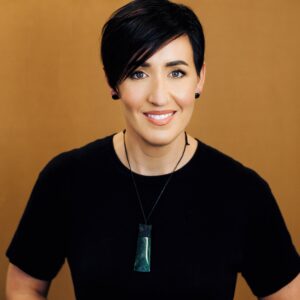
Māori and Pacific nurses were being prioritised under the return to nursing support fund for those who wanted to get nursing council registration, the statement said.
Kaupapa Māori health-care providers were prioritised to receive additional funding from April 1, for nursing and kaiawhina pay parity with peers in Te Whatu Ora, Gray and Oliff said.
In addition, Te Aka Whai Ora had opened Te Pitomata grants for Māori health students on April 6, and said the budget of $3.27 for the programme had nearly tripled from the previous student scholarship programme investment.



